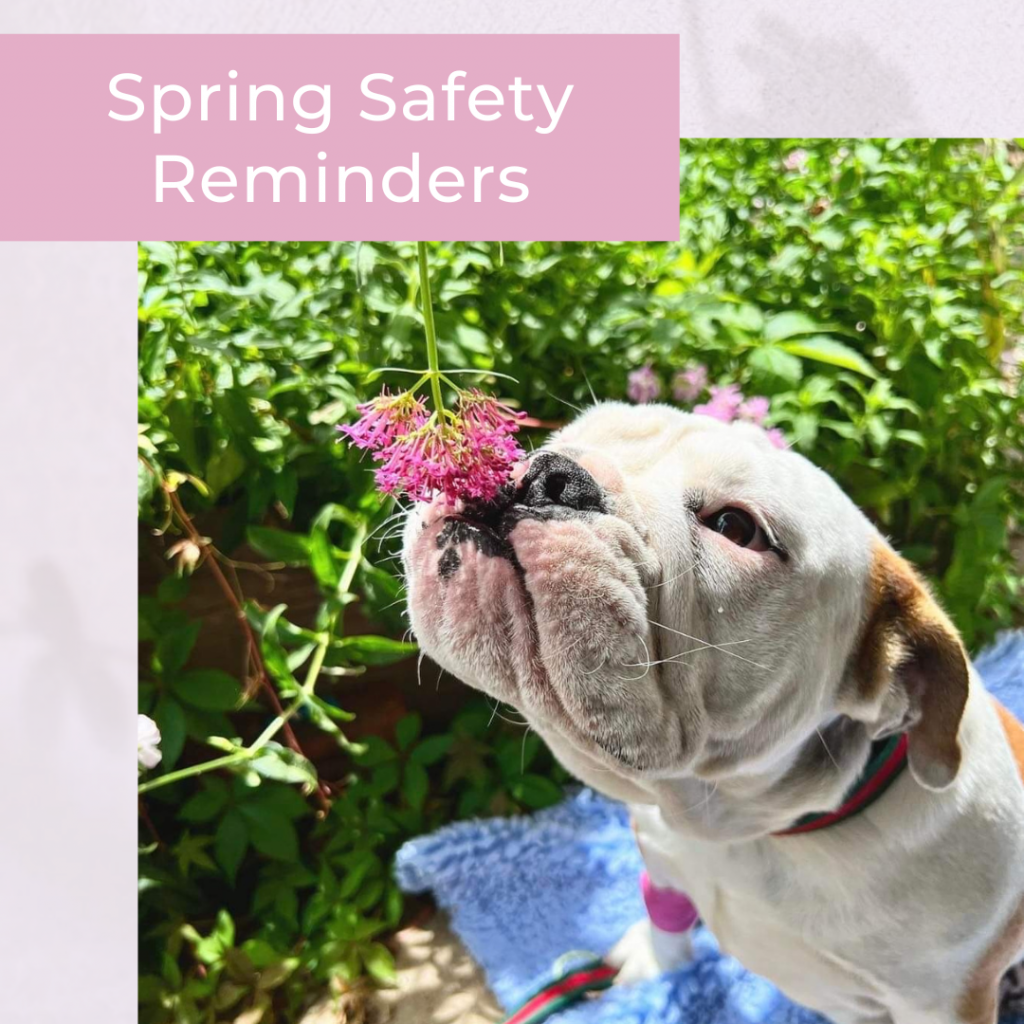
With the change in season comes a few new safety topics for pet owners to be aware of. In this article we will be covering four Spring and Summer related health topics;
- Grass Seeds
- Heat Stress
- Snake Safety
- Paralysis Ticks
Grass Seeds
Unfortunately with the beautiful spring weather and rapid growth of vegetation comes grass seeds. These seeds have a sharp tip and barbed end, allowing them to puncture skin easily and even migrate through the body. At Hall Vet Surgery we often see patients who have these little suckers in their paws, ears, eyes, nostrils and even genitals, ouch!
The best way to avoid grass seeds is to avoid long grass, keep grass on your own property mowed and don’t allow your pet to run through long grass on walks. If your pet has long fur, trimming their fur (especially their paws) can also dramatically reduce their chances of ending up with grass seeds embedded in their skin.
For more information and a list of symptoms to keep an eye out for, see: Grass Seeds Information.
Heat Stress
Heat Stress is extremely dangerous for our pets, in severe cases it can cause irreversible damage to internal organs and can even be fatal. Unlike us, our pets are unable to sweat and are less efficient in cooling themselves down. As pets rely on panting as their primary way of eliminating excess body heat, brachycephalic (short-nosed) breeds are much more at risk due to their inability to breath and pant as efficiently. Pets who are overweight, have heart disease, are very young or very old are also at increased risk.
Ensuring your pet ALWAYS has access to water, shade and a well ventilated area is the number one way to prevent heat stress. Exercising your pet at cooler times in the day and not allowing them to over exert themselves is also extremely important.
For more tips and tricks see: Preventing Heatstroke.
Snake Safety
As snakes hibernate during the colder months the vast majority of snake bites take place in Spring and Summer. Snakes are commonly found in areas with long grass, rocks and other hiding holes, often near a fresh water source such as a creek or dam.
It is important to remember that most snakes will try to avoid you and your pets. However, whilst we humans may simply walk away from a snake, our pet’s are inquisitive, armed with natural hunting instincts and when given the chance, will harass snakes often resulting in snake bites.
The best ways to prevent snake bites are:
- Avoid areas with grass any longer than ankle height
- Always keep your dog on lead when walking, do not let your dog investigate off path/in long grass
- Keep your backyard tidy, mowed and remove any rubbish that would make a nice hiding spot for a snake
- Consider building a cat enclosure for cats that like to venture outdoors
Symptoms to look out for:
- Vomiting
- Sudden weakness
- Collapse (can seem to ‘recover’ shortly after)
- Twitching of the muscles
- Hyper-salivation
- Dilated pupils non-responsive to light
- Blood in urine
- Paralysis
What to do if you think your pet may have been bitten by a snake:
If you suspect your pet has been bitten by a snake you should keep them as quiet/still as possible whilst seeking immediate veterinary attention. Snake bite envenomation is life-threatening, the sooner your pet is treated the better their chances of survival.
Unless you are certain the snake is dead do not put yourself at risk trying to identify it. Never attempt to catch or harm a snake. Additional information on prevention and treatment of snake bites can be found, here.
Paralysis Ticks
Many Canberra residents like to head to the coast during the Spring and Summer months and often enjoy bringing their furry family members along for the ride. It is absolutely imperative that your pets receive tick prevention before you head to the coast, even if they’re not coming with you, as ticks can even hitch a ride back with you and attach to your pet at home!
Paralysis ticks are capable of killing an animal within 3-4 days of attaching if they have not received tick prevention prior. Thankfully most paralysis tick patients who receive veterinary treatment will recover, but using preventatives is a far safer and cost effective option.
There are lots of convenient and cost effective prevention options on the market nowadays, from chews to topical treatments, one to six months coverage and options that cover for fleas and ticks alone or fleas, ticks, intestinal worms and heartworm all in one.
Early signs of tick paralysis include:
- Tiredness or lethargy
- Staggering, wobbliness or loss of coordination
- Trouble standing, sitting or raising from a laying position
- Vomiting or gagging
- Harsh breathing sounds or breathing difficulty
- Change in the sound of their bark or meow
If your pet is showing any of the above symptoms after they, or you, have been to the coast we recommend seeking veterinary attention immediately. The sooner your pet receives treatment, the better there chance of survival.
If you find a tick on your pet and their are no symptoms that they may be unwell, we still recommend booking in for a consultation. It is helpful for us to be able to identify the tick under the microscope and have a discussion about what to look out for as symptoms can develop even after the paralysis tick is removed.
FOR FURTHER ADVICE ON SUITABLE TICK PREVENTION PRODUCTS FOR YOUR PETS, OR ANY OF THE ABOVE TOPICS, PLEASE CALL OUR FRIENDLY CUSTOMER CARE TEAM ON (02) 6230 2223.


